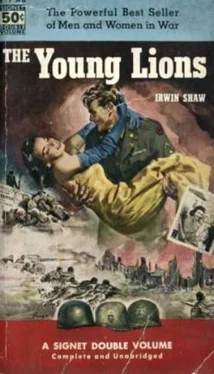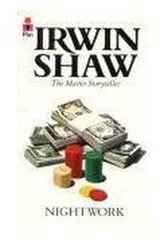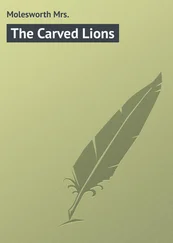Irwin Shaw - The Young Lions
Здесь есть возможность читать онлайн «Irwin Shaw - The Young Lions» весь текст электронной книги совершенно бесплатно (целиком полную версию без сокращений). В некоторых случаях можно слушать аудио, скачать через торрент в формате fb2 и присутствует краткое содержание. Жанр: Классическая проза, на английском языке. Описание произведения, (предисловие) а так же отзывы посетителей доступны на портале библиотеки ЛибКат.
- Название:The Young Lions
- Автор:
- Жанр:
- Год:неизвестен
- ISBN:нет данных
- Рейтинг книги:4 / 5. Голосов: 1
-
Избранное:Добавить в избранное
- Отзывы:
-
Ваша оценка:
- 80
- 1
- 2
- 3
- 4
- 5
The Young Lions: краткое содержание, описание и аннотация
Предлагаем к чтению аннотацию, описание, краткое содержание или предисловие (зависит от того, что написал сам автор книги «The Young Lions»). Если вы не нашли необходимую информацию о книге — напишите в комментариях, мы постараемся отыскать её.
The Young Lions — читать онлайн бесплатно полную книгу (весь текст) целиком
Ниже представлен текст книги, разбитый по страницам. Система сохранения места последней прочитанной страницы, позволяет с удобством читать онлайн бесплатно книгу «The Young Lions», без необходимости каждый раз заново искать на чём Вы остановились. Поставьте закладку, и сможете в любой момент перейти на страницу, на которой закончили чтение.
Интервал:
Закладка:
Stellevato turned their jeep and started to follow Morrison. Michael sat stiffly in the front seat. He avoided looking at the hotel steps, where Mrs Dumoulin was standing in front of her neighbours.
"Monsieur!" It was Mrs Dumoulin's voice, loud and commanding. "Monsieur!" Michael sighed. "Hold it," he told Stellevato.
Stellevato stopped the jeep and honked the horn at Morrison. Morrison stopped, too.
Mrs Dumoulin, followed by the others, came across from the hotel steps. She stood near Michael, surrounded by the weary, work-worn farmers and merchants in their clumsy, frayed clothing.
"Monsieur," Mrs Dumoulin said, with her arms crossed again on her full shapeless breast, her tattered sweater flapping a little in the wind around her broad hips, "do you intend to leave?"
"Yes, Madame," Michael said quietly. "We have orders."
"What about the eight hundred Germans?" Mrs Dumoulin asked, her voice savagely controlled.
"I doubt that they will come back," Michael said.
"You doubt that they will come back," Mrs Dumoulin mimicked him. "What if they don't know about your doubts, Monsieur? What if they do come back?"
"I'm sorry, Madame," Michael said wearily. "We have to go. And if they did come back, what good would five Americans be to you?"
"You are deserting us," Mrs Dumoulin said loudly. "They will come back and see the four dead ones over there and they will kill every man, woman and child in town. You can't do that! You must stay here and protect us!"
Michael looked wearily at the two jeep-loads of soldiers – Stellevato, Keane, Morrison, Kramer, himself – stalled in the ugly little square. Keane was the only one who had ever fired a shot in anger, and he might be considered to have done his share for the day. Lord, Michael thought, turning regretfully back to Mrs Dumoulin, who stood there like the fierce, prodding, squat incarnation of complex duty, Lord, what protection you would get against that phantom German battalion from these five warriors! "Madame," Michael said, "it's no good. There's nothing we can do about it. We are not the American Army. We go where we are told and we do what we are ordered to do." He stared past Mrs Dumoulin at the anxious, accusing faces of the townspeople, trying to reach them with his good intentions, his pity, his helplessness. But there was no answering glow in the frightened faces of the men and women who were certain they were being left to die that day in the ruins of their homes.
"Forgive me, Madame," Michael said, almost sobbing, "I can't help…"
"You had no right to come," Mrs Dumoulin said, suddenly quiet, "unless you were prepared to stay. The tanks last night, you this morning. War or no war, you have no right to treat human beings like this…"
"Nikki," Michael said thickly, "let's get out of here! Fast!"
"It is dirty," Mrs Dumoulin was saying, speaking for the racked men and women behind her as Stellevato drove the jeep away, "it is too dirty, it is not civilized…"
Michael could not hear the end of her sentence, and he did not look back as they drove swiftly out of town, following Kramer and Morrison, in the direction of Colonel Pavone.
There were champagne bottles all over the table, catching the light of the hundreds of candles which were the only illumination in the night club. The room was very crowded. Uniforms of a dozen nations mingled with gay print dresses, bare arms, high-piled gleaming hair. Everybody seemed to be talking at once. The liberation of Paris the day before and the parade that afternoon, with the attendant interesting sniping from the rooftops, had liberated an enormous flood of conversation, most of which had to be shouted loudly to be heard over the three musicians in the corner, who were playing, very loudly, "Shuffle off to Buffalo".
Pavone was sitting opposite Michael, smiling widely, a cigar in his mouth, his arm lightly around a bleached lady with long false eyelashes. Occasionally he waved his cigar in pleasant salute to Michael, who was flanked by the correspondent, Ahearn, the man who was making a study of fear for Collier's, and a middleaged, beautifully dressed pilot in the French Air Force.
"Whitacre," Pavone said, across the table, "you're a fool if you ever leave this city."
"I agree with you, Colonel," Michael said. "When the war is over, I'm going to ask them to discharge me on the Champs Elysees." And, for the moment, he meant it. From the minute when, from among the rolling troop-filled trucks, he had seen the spire of the Eiffel Tower rising above the roofs of Paris, he had felt that he had finally arrived at his true home. Caught in the riotous confusion of kissing and handshaking and gratitude, hungrily reading the names of the streets which had haunted his brain ever since he was a boy. "Rue de Rivoli", "Place de l'Opera", "Boulevard des Capucines", he had felt washed of all guilt and all despair. Even the occasional outbursts of fighting, among the gardens and the monuments, when the remaining Germans had fired away their ammunition before surrendering, had seemed like a pleasant and fitting introduction to the great city. And the spilled blood on the streets, and the wounded and dying men being hurried away on stained stretchers by the FFI Red Cross women, had added the dramatically necessary note of poignancy and suffering to the great act of liberation.
He would never be able to remember what it had been like, exactly. He would only remember the cloud of kisses, the rouge on his shirt, the tears, the embraces, the feeling that he was enormous, invulnerable, and loved.
"I remember," Ahearn was saying next to him, "that the last time I saw you I questioned you on the subject of fear."
"Yes," Michael said, looking agreeably at the sunburned red face, and the serious grey eyes. "I believe you did. How's the market on fear these days among the editors?"
"I decided to put off writing it," Ahearn said earnestly. "It's been overdone. It's the result of the writers after the last war, plus the psychoanalysts. Fear has been made respectable and it's been done to death. It's a civilian concept. Soldiers really don't worry as much about it as the novelists would have you believe. In fact, the whole picture of war as an unbearable experience is a false one. I've watched carefully, keeping my mind open. War is enjoyable, and it is enjoyed by and large by almost every man in it. It is a normal and satisfactory experience. What is the thing that has struck you most strongly in the last month in France?"
"Well," Michael began, "it's…"
"Hilarity," Ahearn said. "A wild sensation of holiday. Laughter. We have moved three hundred miles through an enemy army on a tide of laughter. I plan to write it for Collier's."
"Good," Michael said gravely. "I shall look forward to reading it."
"The only man who has ever written accurately about a battle," said Ahearn, leaning over so that his face was just six inches from Michael's, "was Stendhal, In fact, the only three writers who have ever been worth reading twice in the whole history of literature were Stendhal, Villon and Flaubert."
"Oh, sweet and lovely, lady be good," one of the musicians was singing in accented English, "oh, lady be good to me…"
"Stendhal caught the unexpected and insane and humorous aspect of war," Ahearn said. "Do you remember, in his journal, his description of the Colonel who rallied his men during the Russian campaign?"
"I'm afraid not," Michael said.
"You look like a nice, lonely soldier." It was a tall, dark-haired girl in a flowered dress whom Michael had smiled at across the room fifteen minutes before. She was standing, bent over the table, her hand on Michael's. Her dress was cut low, and Michael noticed the pleasant, firm, olive sweep of her bosom so close to his eyes. "Wouldn't you like to dance with a grateful lady?"
Читать дальшеИнтервал:
Закладка:
Похожие книги на «The Young Lions»
Представляем Вашему вниманию похожие книги на «The Young Lions» списком для выбора. Мы отобрали схожую по названию и смыслу литературу в надежде предоставить читателям больше вариантов отыскать новые, интересные, ещё непрочитанные произведения.
Обсуждение, отзывы о книге «The Young Lions» и просто собственные мнения читателей. Оставьте ваши комментарии, напишите, что Вы думаете о произведении, его смысле или главных героях. Укажите что конкретно понравилось, а что нет, и почему Вы так считаете.











